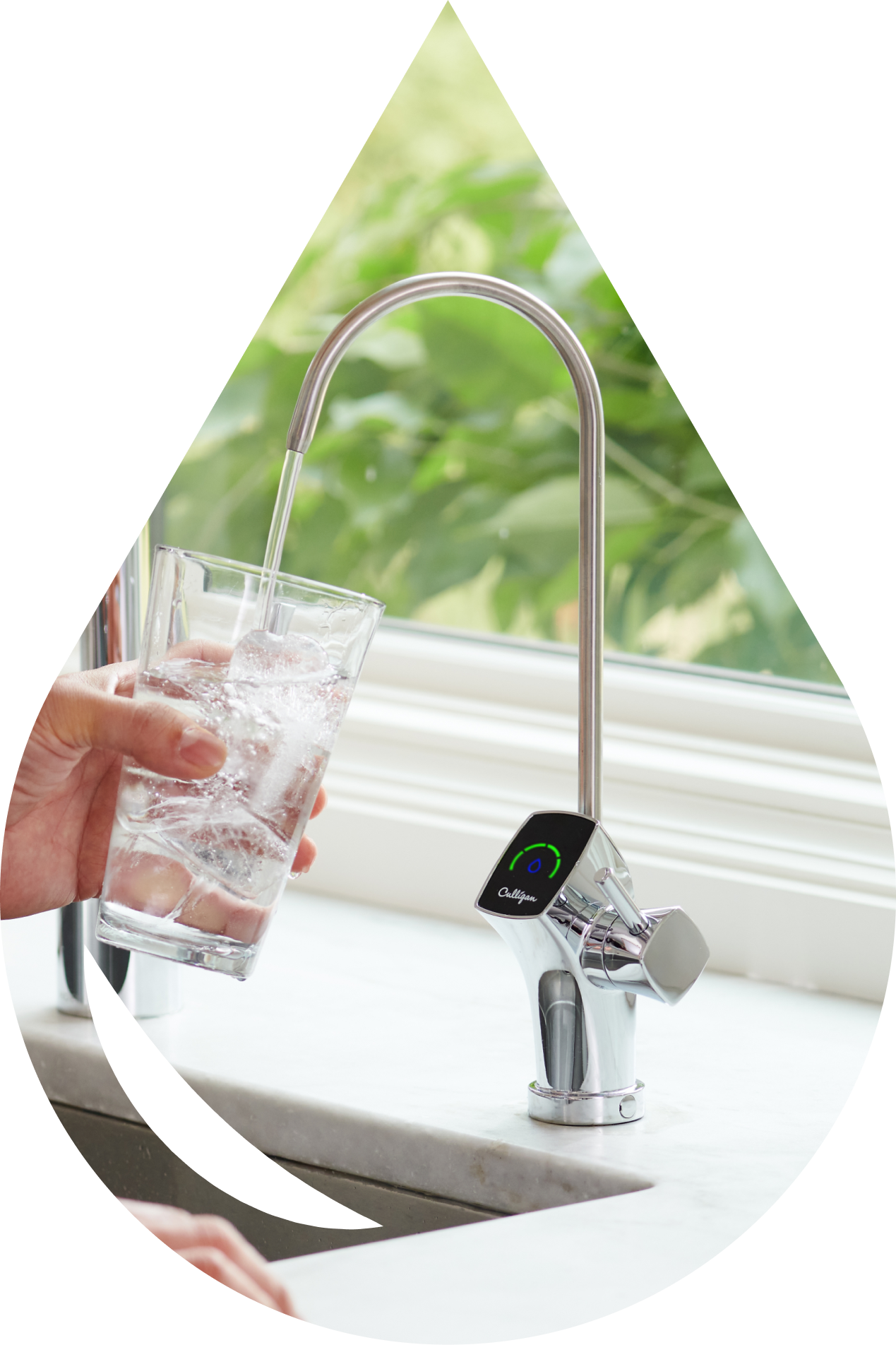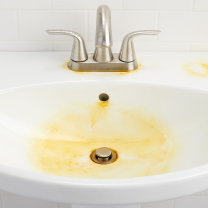

Hard water is caused by high levels of calcium and magnesium in water supplies. Have water spots on your freshly washed glasses or shower doors? Hard water is likely the culprit - and the costs of this issue can add up over time, from more money spent on soaps and detergents to repair and replacement costs for water-using appliances.

Chlorine is one of the most common disinfectants used in tap water as part of municipal water treatment processes. It’s generally not a health concern, but it can leave behind an unpleasant taste and bleach-like odor when drinking or bathing. Depending on your water source and treatment facility, different levels of chlorine may be found in your water supply.

Iron is one of the most common solid elements on earth and can often find its way into your water, most commonly for homes using well water. Iron water can leave rust stains on your appliances and clothing as well as in sinks, bathtubs and toilets. You also may notice a metallic taste in your drinking water.
*This tool is for educational purposes only. Recommendations provided are based on user inputs and are not necessarily inclusive of all potential water treatment solutions. A home water test with your local Culligan expert is recommended to determine specific water problems within your home and inform the most relevant product recommendations.
**Contaminants may not be present in your water.